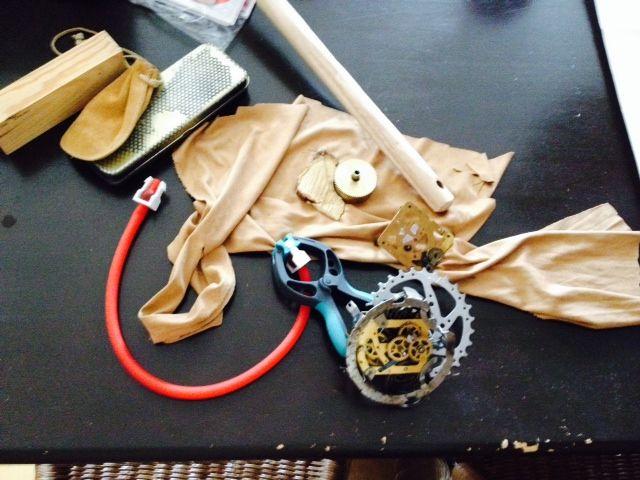
What was once considered merely a new way to recycle has turned into a movement. Innovative, sustainable companies like Looptworks, Rewilder, and Bureo are making high-quality, trendy and desirable products using wasted materials, bringing us ever closer to a circular economy.
This isn't your environmentalist or hippie friend's upcycling anymore. Upcycling is now not only good for the environment. It is high fashion and in-demand.
One of the early trendsetters in high-quality upcycling is Looptworks, which creates bags, backpacks and other accessories from waste items. Co-founder Scott Hamlin worked for a large outdoor apparel company before starting his own venture. While he saw a push for sustainability on the front end, he noticed little action in the space where more waste was actually being generated – in the manufacturing process itself.
“Thirty percent of our materials never actually got used in manufacturing,” Hamlin said of his prior work experience with an outdoor gear company. “To me, that was a huge issue that nobody was talking about. It was dealt with as 'business as usual.'”
Trashed fashion: Making desirable products from waste
Looptworks aims to fix this problem. And today, the Portland-based company creates quality bags, accessories and apparel using only excess materials that would have otherwise been incinerated or ended up in landfills. Moreover, the Looptworks team works directly with companies to assist them in reducing their waste -- whether it's a partnership with Alaska Airlines to make products from old airplane seats, or collaborating with a local leather jacket-maker in Portland that wants to find a use for excess leather.
Looptworks understands that it can't solve this problem alone. That's why the company believes strongly in partnerships, as its goal is not to dominate the market, or innovate in isolation, but spur larger changes that help turn the entire industry toward sustainability.
“We want to be an impact brand,” Hamlin told TriplePundit. “And we want to ... bring industry to the table, because making change at the industry level is when we all win.”
Upcycled moves from niche to chic
Another part of the company's vision is expanding the market for upcycled products. Today, Looptworks is part of a growing ecosystem of companies that are not only reducing waste, but are also making products that anyone who desires quality would want. That helps expand upcycling's market beyond those who care about sustainability to those who may be interested in sustainability, but care, first and foremost, about quality and style.
For example, Rewilder, a company based in Los Angeles, make purses and handbags using a highly unusual collection of upcycled materials. Products are made from upcycled filter cloth, which breweries use to filter hops and barley, as well as recycled house paint and handles from recycled climbing ropes.
Patagonia, a longtime leader in sustainable fashion, is also joining in on the trend. The outdoor gear company will launch the Re///collection this fall, a new line that contains upcycled materials including wool from discarded sweaters and recycled polyester from worn-out garments.
And this is just a sampling of the many other companies, including Bureo, Piece x Piece and Project Repat, that are innovating in this field and creating products that people desire. That, Hamlin said, is an important shift.
“People aren't going to buy this just because it is upcycled – it has to be an amazing, usable product,” Hamlin told 3p. “That evolution has happened and continues to happen.”
Expanding the market for upcycled goods
While the progress that we're seeing is great, upcycling is still a relatively small portion of the market. Despite the fact that the aforementioned small companies are showing the industry new methods and production possibilities, thus far, the big companies that dominate global apparel have yet to fully come on board. Part of that is due to the complexity of creating sustainable systems when you manufacture millions of products shipped all around the world. But part of is the same inertia that Hamlin saw at his previous work.
“What I see now is a lot more awareness around holistic, sustainable processes and approaches – but I'm not sure how many of those are actually getting implemented,” Hamlin told us. “I would challenge the industry to take it out of the classroom and start to move into implementation.”
And when they do, Looptworks will be there, willing to help companies take steps that allow the whole industry to shift toward upcycling, reducing waste and, ultimately, a fully circular economy in which all products are reused, recycled and, of course, upcycled. We've got a long way to go, but we're headed in the right direction.
Photo Credit: Fuedal Fox via Wikimedia Commons

Nithin Coca is a freelance journalist who focuses on environmental, social, and economic issues around the world, with specific expertise in Southeast Asia.














